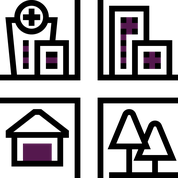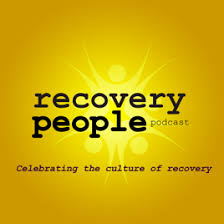
Community Model
(Network of Congregations)
THE READINESS PHASE
“Congregational community readiness is the extent to which a community is adequately prepared to implement a program or ministry. A community must have the support and commitment of its members and the needed resources to implement an effective effort. Because community readiness is a process, factors associated with it can be objectively assessed and systematically enhanced.”
NIDA’s Community Readiness for Drug Abuse Prevention:
Issues, Tips and Tools
KEY PRINCIPLES
Our experience with the faith community has led us to adopt a number of key principles in our work. First and foremost, we have learned it is very important to develop relationships with individuals “willing” to champion this cause. There is no shortcut. Here are other key principles based on our experience:
- Importance of working top down as well as bottom up. Rarely do individual congregations adopt “carte blanche” the proposals of its faith tradition but they will see greater credibility in those programs, initiatives, and ministries endorsed by their leaders. It has been demonstrated that successful congregation efforts when lifted up will get the attention of the whole organization because of the desire to build on success. For instance, the United Methodist Church, General Board of Church and Society and Presbyterian Church USA have endorsed this model.
- Comprehensive approach meeting the needs of the entire congregation. An effective approach provides the awareness and education for everyone to see how they are affected, how they can prevent problems, intervene early and/or strengthen the healing process within their families and congregation. We also understand that people will invest in and lend greater support to what they have helped create
- Work with existing congregational and community resources. The faith community doesn’t need to “be the answer” or “do it all.” The faith community working in conjunction with other community resources can fill the gaps and make a greater impact. This partnership makes the problem less formidable and the contribution larger.
- Recognize levels of readiness and build capacity for response. Helping clergy and congregations realize this is a process not a curriculum or an event but an approach to prepare a congregation toward providing a helpful response that can be sustained. This allows leaders to be patient and intentional in taking the next step.
- Honor the system and institutionalize the approach. Each faith community has a system in place to meet the needs of the people they serve. Integrating the team ministry into the communication, education and support activities already in place makes for a smoother as well as comfortable approach assuring sustainability.
The success of creating readiness and engaging clergy and lay people is highly dependent on informing each congregation at all levels about this relational ministry through denominational and faith tradition opportunities, religious publications, ministerial associations, community coalitions, and other communication systems.
READINESS TRAINING
An important first step is the Faith Partners Readiness Training. The Readiness Training can offer an opportunity to bring together religious, community coalition leaders, prevention professionals, recovery support specialists, treatment providers, and other stakeholders to be informed on the Faith Partners team ministry model, the stages of site and ministry development, develop strategies to build community readiness, identify strategies to recruit congregations, and involve community resources.
This is a time to see the big picture – the full process of initiating, nurturing and sustaining congregation and community efforts. It is a critical step in recruiting congregations and to identify “champions” on the ground to move this initiative forward.
THE DEVELOPMENT PHASE
Recommended Steps to Launch an Effective Team Ministry
It takes a careful and well planned process to start an effective lay team ministry to address the whole congregation. To begin this congregational ministry we recommend an important four step process.
1. Build Congregational Support – Build support for this ministry early. Use the Congregational Readiness Toolkit which includes the Healing Places book to introduce this ministry to clergy, potential team facilitators, and congregational leadership. Use the Faith Leader Readiness Survey with key clergy from differing congregations or ministerial associations. Readiness and support are critical to success. Finally, send key interested clergy and laity to the Leadership Training.
2. Equip the Leadership – Attend Leadership Training, a six-hour workshop for clergy, staff and lay members of congregations. This day will cover basic issues of the role of the faith community in awareness, education, and recovery support; important tips for clergy and team facilitators in initiating a team ministry; potential barriers to the ministry; and four tools to help initiate a congregational team ministry. This training also includes three ministry guides, on-going technical assistance and the implementation of the congregational survey and resulting report to share with the congregation.
3. Develop the Team – Complete the two-day Team Training for up to 10 congregational team members, usually scheduled 2-4 months after leadership training, giving time to assess the needs of the congregation, identify opportunities for education, and recruit team members. Training addresses specific ministry strategies in the ministry areas of prevention, early intervention, referral assistance, recovery support, and advocacy; team functioning; connection to community resources and an initial plan of action.
THE SUSTAINING PHASE
ADDITIONAL SKILLS TRAINING – New teams need opportunities to learn skills in the five above-mentioned ministry areas. To reinforce these responses, connect to community resources, and to equip team members to function more effectively, a Skills Training can be conducted. In addition, a plan is developed to continue the educational process by connecting with area community resources to help teams with additional knowledge and skills. These continuing education opportunities can build capacity areas which congregations need skills, enable collaboration with other community resources, and assure the possibility of an effective, sustainable congregational team ministry.
CLERGY CORE COMPETENCY TRAINING – The congregation and community benefit when clergy have accurate information and appropriate skills to respond to the risk and prevalence of alcohol and other drug problems. The training is based on the material produced by an expert religious leader panel sponsored by Johnson Institute and the National Association of Children of Alcoholics. This training can equip clergy to be more effective in their role in a congregational team ministry approach.
AREA COORDINATION
Individuals, agencies or coalitions can provide area coordination for the congregational teams. They are responsible for providing support to the teams through regular contact and network meetings. They can help in database development of local resources and participate in the team evaluation process. Ideally area coordinators have experience in alcohol and other drug programs, community outreach, education, or health/human services. It helps to have experience working with community-based agencies, faith based organizations and volunteers. Faith Partners staff can provide support and consultation for this position.
ON-GOING EVALUATION
This comprehensive and unique approach led by and advocated for by people in the pews is an innovative way to create a caring, nonjudgmental, safe place to which affected and affiliated individuals and families can turn for education and assistance. In our evaluation, the unit of analysis is on a congregational level. This is appropriate because the approach focuses on environmental change and impact within each participating congregation. A sustained effort will reveal changes in attitudes and behaviors. Over time due to this intervention the assertion is one will see on a post-test survey an increase in participation in and readiness to provide prevention, education, and recovery support activities.


